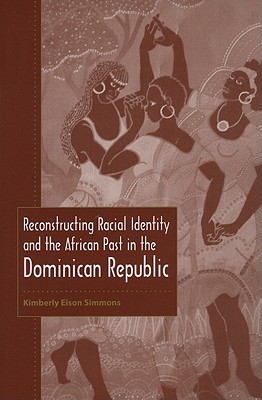
- We will send in 10–14 business days.
- Author: Kimberly Eison Simmons
- Publisher: University of Florida Press
- ISBN-10: 0813036755
- ISBN-13: 9780813036755
- Format: 15.2 x 22.6 x 1.3 cm, minkšti viršeliai
- Language: English
- SAVE -10% with code: EXTRA
Reconstructing Racial Identity and the African Past in the Dominican Republic (e-book) (used book) | bookbook.eu
Reviews
Description
In Latin America and the Caribbean, racial issues are extremely complex and fluid, particularly the nature of "blackness." What it means to be called "black" is still very different for an African American living in the United States than it is for an individual in the Dominican Republic with an African ancestry.
Racial categories were far from concrete as the Dominican populace grew, altered, and solidified around the present notions of identity. Kimberly Simmons explores the fascinating socio-cultural shifts in Dominicans' racial categories, concluding that Dominicans are slowly embracing blackness and ideas of African ancestry. Simmons also examines the movement of individuals between the Dominican Republic and the United States, where traditional notions of indio are challenged, debated, and called into question. How and why Dominicans define their racial identities reveal shifting coalitions between Caribbean peoples and African Americans, and proves intrinsic to understanding identities in the African diaspora.EXTRA 10 % discount with code: EXTRA
The promotion ends in 22d.02:23:46
The discount code is valid when purchasing from 10 €. Discounts do not stack.
- Author: Kimberly Eison Simmons
- Publisher: University of Florida Press
- ISBN-10: 0813036755
- ISBN-13: 9780813036755
- Format: 15.2 x 22.6 x 1.3 cm, minkšti viršeliai
- Language: English English
In Latin America and the Caribbean, racial issues are extremely complex and fluid, particularly the nature of "blackness." What it means to be called "black" is still very different for an African American living in the United States than it is for an individual in the Dominican Republic with an African ancestry.
Racial categories were far from concrete as the Dominican populace grew, altered, and solidified around the present notions of identity. Kimberly Simmons explores the fascinating socio-cultural shifts in Dominicans' racial categories, concluding that Dominicans are slowly embracing blackness and ideas of African ancestry. Simmons also examines the movement of individuals between the Dominican Republic and the United States, where traditional notions of indio are challenged, debated, and called into question. How and why Dominicans define their racial identities reveal shifting coalitions between Caribbean peoples and African Americans, and proves intrinsic to understanding identities in the African diaspora.

Reviews